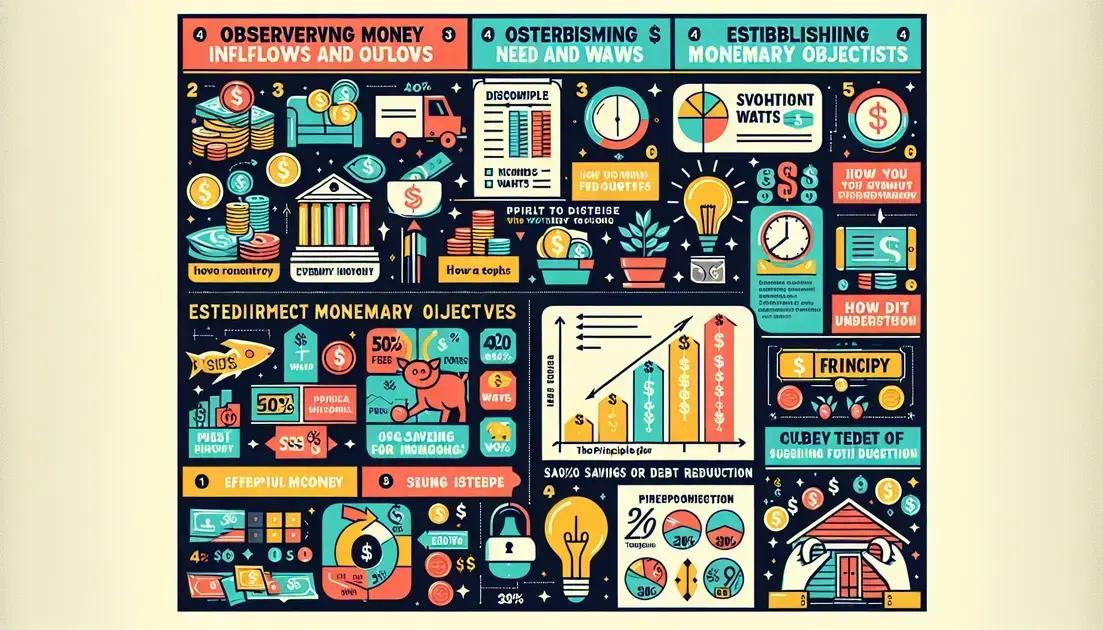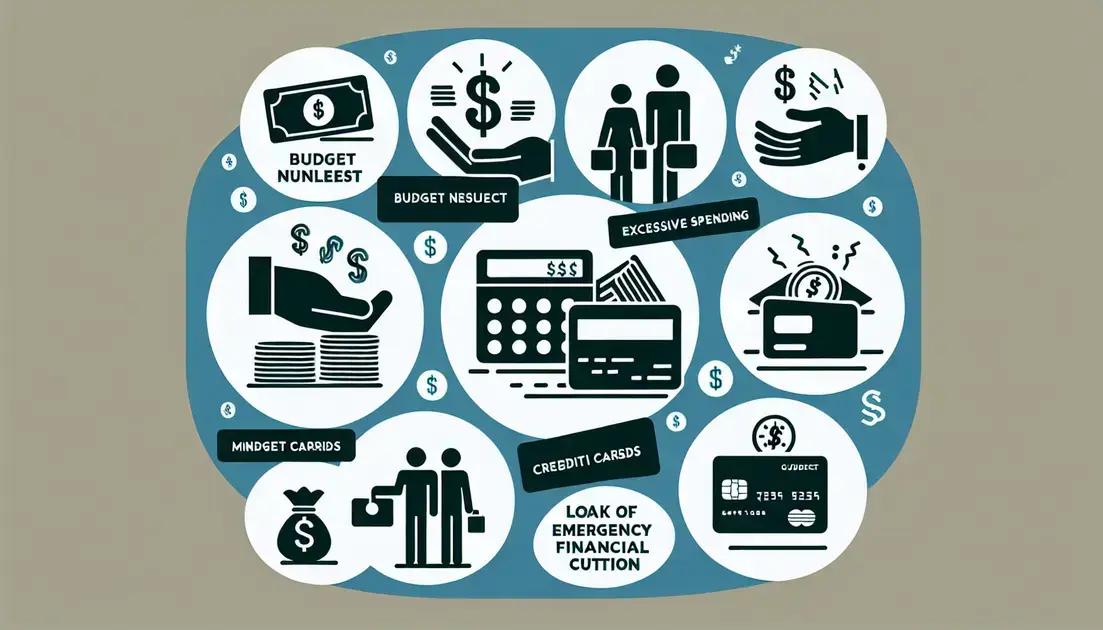Finance: Unlocking the Secrets to Successful Money Management Today
Advertising
Finance is the study of how money is managed. It involves activities such as saving, investing, lending, and budgeting. Understanding finance is essential for making informed decisions impacting your financial future.
Key Concepts in Finance
Some of the key concepts include:
- Budgeting: This process involves creating a plan on how to spend your money. A budget helps you keep track of income and expenses, ensuring you do not overspend.
- Savings: Saving money means setting aside a part of your income for future needs. A healthy saving habit can provide financial security and prepare you for emergencies.
- Investing: Investing is when you use your money to earn more money. This could be through stocks, bonds, or real estate. It’s important to understand the risks and rewards of each type of investment.
- Credit: Credit refers to the ability to borrow money with the promise to pay it back later. Understanding credit scores and how to maintain good credit is crucial for future financial health.
Why Finance Matters
Having knowledge of finance allows individuals to make smarter choices about spending and saving. By understanding how money works, people can avoid debt and work towards financial independence. Also, sound financial principles can help in planning for retirement and other long-term goals.
Your Journey in Finance
Starting your journey in finance can be as simple as learning the basics and applying them to your daily life. Whether it’s tracking your expenses or learning about different investment options, every small step counts towards achieving your financial goals.
Effective Budgeting Techniques for Everyone

Budgeting is an important part of managing your finances effectively. It helps you understand your financial situation and make better spending choices. Here are some effective budgeting techniques that everyone can adopt:
1. Track Your Income and Expenses
The first step to budgeting is knowing how much money you have coming in and going out. Use tools like spreadsheets, apps, or paper to record your monthly income and all your expenses. This will give you a clear picture of where your money is going.
2. Set Clear Financial Goals
Having specific goals can motivate you to stick to your budget. Decide what you want to achieve, such as saving for a vacation, buying a car, or paying off debt. By knowing your targets, you can adjust your budget to make these goals achievable.
3. Create a Realistic Budget Plan
Your budget should reflect your actual lifestyle. Include fixed expenses like rent and utilities, and variable expenses such as groceries and entertainment. Make sure to leave some room for unexpected costs. A budget that is too strict can be hard to follow.
4. Use the 50/30/20 Rule
A popular budgeting method is the 50/30/20 rule. This suggests that you spend 50% of your income on needs, 30% on wants, and save 20%. This easy guideline can help you balance spending and saving effectively.
5. Review and Adjust Regularly
Your financial situation and goals may change over time. Regularly review your budget to ensure it still meets your needs. Adjust it as necessary, and keep track of your progress towards your financial goals.
Implementing these budgeting techniques can help you take control of your finance. Start today and watch how these methods make a difference in your financial health!
Investing 101: Where to Start in Finance
Investing is a powerful way to grow your money over time. For beginners, it might seem complicated, but with some basic knowledge, anyone can get started. Here are essential steps for Investing 101:
1. Understand the Different Types of Investments
There are various investment options available. Some of the most common include:
- Stocks: Buying shares in a company, which means you own a piece of that company. Stocks can provide high returns but come with higher risks.
- Bonds: Loans made to companies or governments that pay fixed interest over time. They are generally considered safer than stocks.
- Mutual Funds: Collections of stocks and/or bonds managed by professionals. They allow you to invest in a variety of assets at once.
- Real Estate: Investing in property, which can provide rental income and potential value appreciation.
2. Set Your Investment Goals
Before you invest, it’s vital to set clear goals. Are you saving for retirement, a home, or your child’s education? Knowing your goals will help dictate your investment choices.
3. Assess Your Risk Tolerance
Your risk tolerance is how much risk you are willing to take on with your investments. If you are uncomfortable with the idea of losing money, you might prefer safer investments like bonds. If you’re okay with risk for higher potential returns, stocks could be suitable.
4. Start with Small Amounts
If you’re new to investing, start small. You don’t have to invest large amounts initially. Many platforms allow you to begin with modest amounts, helping you build confidence and knowledge over time.
5. Diversify Your Portfolio
Diversification means spreading your investments across different asset classes to reduce risk. Instead of putting all your money in one stock, consider investing in a mix of stocks, bonds, and other assets.
6. Keep Learning
Investing is a continuous learning process. Stay informed about market trends, and consider reading books or taking online courses on investing to improve your knowledge.
Common Financial Mistakes to Avoid

Understanding common financial mistakes can help you make better money decisions. Here are several mistakes that many people make and tips for avoiding them:
1. Ignoring a Budget
One of the biggest mistakes is not having or following a budget. A budget helps you track spending and savings. Without one, it’s easy to overspend and fall into debt.
2. Living Beyond Your Means
Spending more than you earn can lead to financial trouble. It’s vital to live within your means. Always review your expenses and prioritize essential purchases.
3. Not Saving for Emergencies
Unexpected expenses can arise at any time. Not having an emergency fund puts you at risk. Aim to save at least three to six months’ worth of living expenses to cover surprises.
4. Relying Too Much on Credit
Using credit cards for everyday purchases can lead to unmanageable debt. Try to use cash or debit cards for routine expenses. Reserve credit cards for emergencies or planned purchases.
5. Delaying Retirement Savings
Waiting to start saving for retirement can be costly. The sooner you start, the more you benefit from compound interest. Even small contributions can add up over time.
6. Falling for Get-Rich-Quick Schemes
Be cautious of investment opportunities that promise quick returns with little risk. If it sounds too good to be true, it probably is. Always do proper research before investing.
7. Neglecting Regular Financial Reviews
Failing to review your finances regularly can lead to missed opportunities and unresolved issues. Schedule regular check-ins to assess your budget, savings, and investment performance.
Take Charge of Your Financial Future
Understanding the fundamentals of finance is crucial for achieving financial success. From budgeting effectively to making informed investment decisions, every step taken today contributes to a better financial tomorrow.
Avoiding common financial mistakes can save you from unnecessary stress and debt. Make a commitment to learning more about finance, and implement the strategies discussed in this guide.
With the right knowledge and planning, you can unlock the secrets to successful money management and set yourself on a path towards financial independence.




